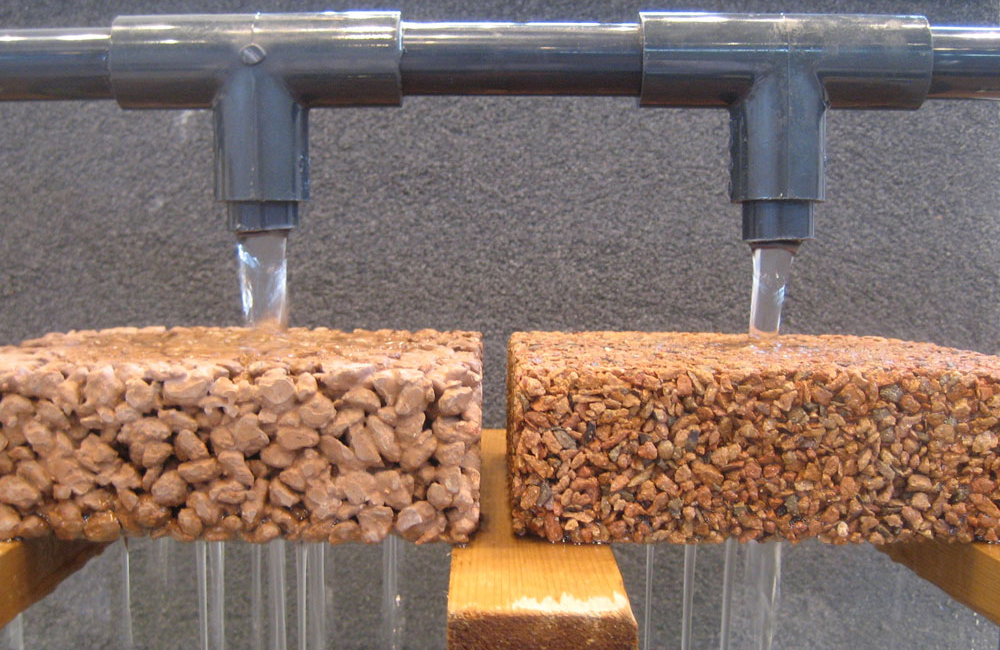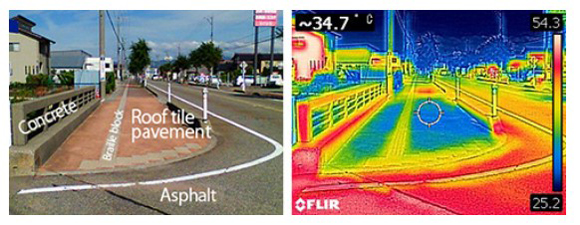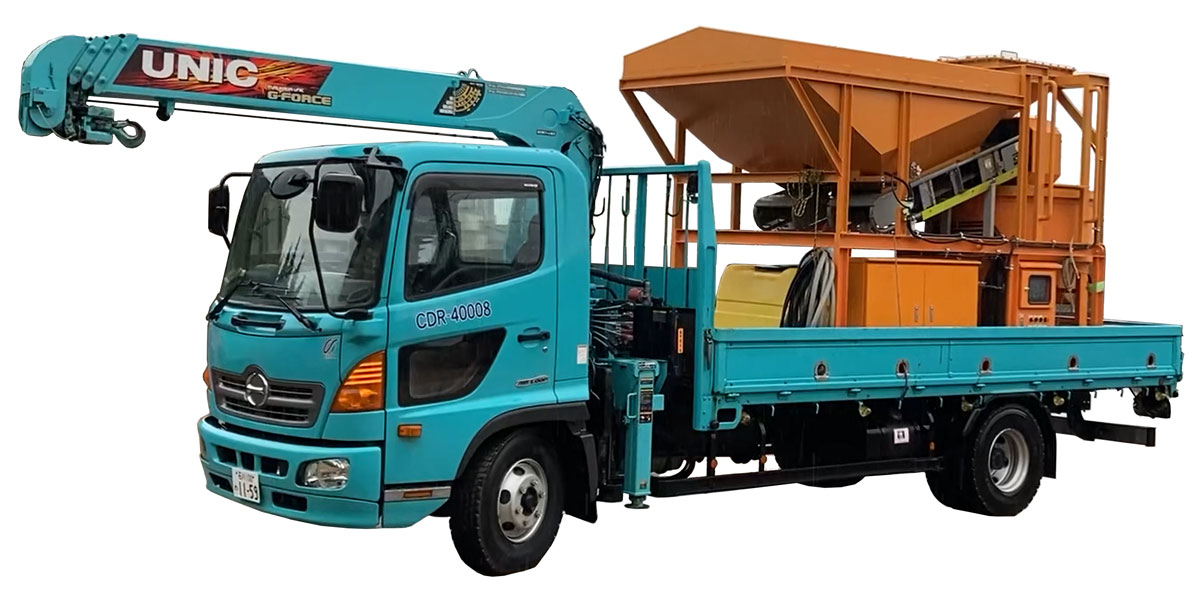Notes
(*1) In 2018, the company received the Grand Prize of the SDGs Business Contest, the Global Innovator Award of the SDGs Business Awards, and the Grand Prize of the Ishikawa Eco Design Award.
(*2) A generic term for concrete using aggregates other than gravel, crushed stone, and lightweight aggregates, as well as concrete using materials other than cement, such as polymer cement concrete and resin concrete.
(*3) Equipment that manufactures concrete by weighing and mixing cement, water, sand, gravel, and admixture materials, which are the raw materials for concrete, in predetermined proportions.
Recycled Pavement Material to Control Urban Flooding and Heat Island Effect
ECO SYSTEM Inc.
| Publication date | June 28, 2023 (Posted on May 10, 2024) |
|---|---|
| Sector | Natural Disasters and Coastal Areas / Life of Citizenry and Urban Life |
Company Overview

ECO SYSTEM is a company whose main products are pavement and wall materials with low environmental impact (*1). After the 1997 Nakhodka heavy oil spill, the company developed a method to reuse contaminated sea sand as pavement material, and has been developing materials that recycle waste materials ever since. Currently, the company is advancing research for commercialization not only in Japan but also in Bolivia and Vietnam.
Climate Change Impacts
The rate of heavy rainfall and strong tropical cyclones is expected to increase in the future due to climate change. The ground is paved in the urban areas, so rainwater does not infiltrate or absorb into the ground and is discharged through drainage ditches. Therefore, urban flooding occurs when rainfall exceeds the city's drainage capacity due to temporary heavy rains. In addition, rising temperatures due to climate change are expected to increase the risk of heat island effect in urban areas with many paved surfaces, increasing the risk of heat stroke.
Adaptation Initiatives
We developed "K-Ground," a product line of crushed waste roof tiles that can be reused as pavement material or composite concrete products. The roof tiles are porous, which allows "K-Ground" to have water permeability (Fig. 1) and water retention properties.
- Water-permeable and water-absorbing materials
- Special concrete product
- Water retention effect (10 cm thickness, 15-18 liters/m2), leading to heat island prevention (Fig. 2)
- Permeability (400 cc flow time: 4.16 seconds), leading to prevention of urban flooding.
- Less reflection and slip resistant
- Concrete pavement material
- Water retention effect (10cm thickness, 15-20 liters/m2), leading to heat island prevention
- Good scenery. Shines at night by diffusely reflecting light, enhancing pedestrian safety.
- Resin pavement material
- Permeability (400 cc flow time: 4.16 seconds), leading to prevention of urban flooding
- Puddles will not form, slip resistant, soft texture for walking
- Good scenery. Shines at night by diffusely reflecting light, enhancing pedestrian safety.
- Initiatives to promote "K-Ground" throughout Japan
Among the several types of K-Ground products, the features of K-Ground (C), K-Ground (Co), and K-Ground (R) are described below.
| K-Ground (C) | |
| K-Ground (Co) | |
| K-Ground (R) |
Concrete made by crushing roof tiles is so-called special concrete (*2), which is difficult to manufacture at ordinary concrete plants. In addition, pavement construction usually requires a ready-mixed concrete plant (*3), but since they are expensive, "K-Ground" could only be used in limited areas. In response, we developed an inexpensive, mobile, vehicle-mounted pavement manufacturing plant called "Mobacon (Fig. 3)," which enables "K-Ground" to be manufactured and constructed regardless of location.
Effects / Expected Benefits
The application of this pavement material, which absorbs water and does not get hot easily, instead of asphalt or concrete in various locations will reduce the risk of urban flooding and heat stroke, which are expected to become increasingly serious in the future.
The widespread use of "K-Ground" will also lead to the effective utilization of roof tiles, which are difficult to recycle, as a resource.
We will continue to expand domestically and internationally using our expertise in the recycling of these wastes and a “local production for local consumption” recycling network in Japan.




